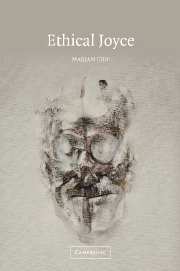Book contents
Introduction
Published online by Cambridge University Press: 22 September 2009
Summary
I will provide you with the available words and the available grammar. But will that help you to interpret between privacies?
Brian Friel, TranslationsIf Europeans had read James Joyce's Finnegans Wake, World War Two need never have happened. Or such, at least, is the legendary claim Joyce is said to have made for his final book. The legend is as indicative as it may be apocryphal. Certainly it is possible to read this claim as a marker of the author's often noted pride (the same pride that led him to tell the elder, established poet W. B. Yeats that he had met Yeats too late to really help him). It is also possible for a frustrated reader to see the legend comically: who indeed would have time to launch a major military offensive while trying to read this obsessive book written for the ideal insomniac. But I prefer, at least provisionally, to take this story at its face value, as a tragic statement of the Wake's ambitious and admirable goals. If read according to Joyce's claim, the Wake emerges as a radically anti-totalitarian book which is not only descriptive but also performative in its effects. In other words, this experimental text engages the reader in acts of interpretation that will, of necessity, affect that readers' ethics not by instruction or influence (which are potentially coercive modes) but through the agencies of interpretive exchange, which in Joyce's works demands reciprocity.
- Type
- Chapter
- Information
- Ethical Joyce , pp. 1 - 29Publisher: Cambridge University PressPrint publication year: 2002



